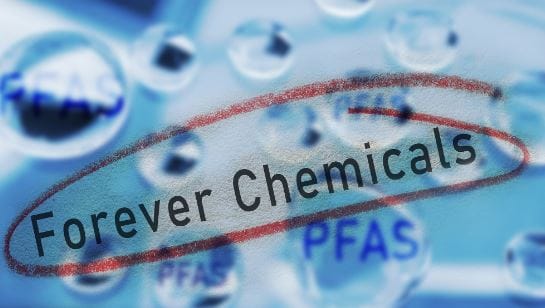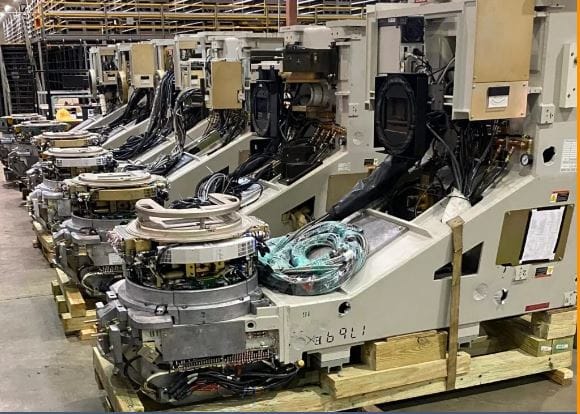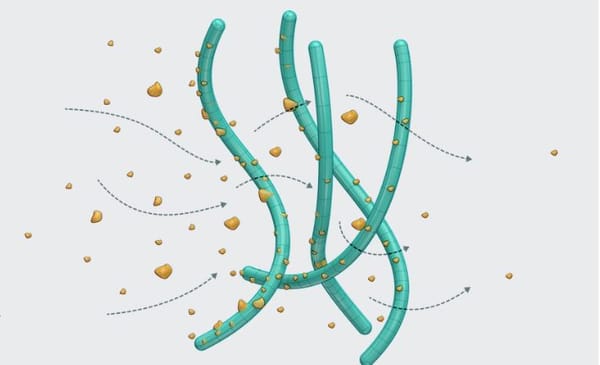
Addressing PFAS. Forever chemicals are taking an irretrievable toll on health everywhere. What options exist?
September 2025 — PFAS, or per- and polyfluoroalkyl substances, often referred to as “forever chemicals,” have emerged as one of the most pressing environmental and public health challenges of the 21st century. Their extreme persistence in the environment and links to severe health risks have placed them at the center of a global regulatory, scientific, and legal reckoning.
Toxic Chemicals That Never Go Away
PFAS owe their nickname to their indestructible chemical structure. The strong carbon-fluorine bonds that make them resistant to heat, water, and stains also make them nearly impossible to break down in nature. Once released into the environment, PFAS can remain for decades, steadily accumulating in soil, groundwater, and the human body.
Human Health at Stake
Mounting evidence ties PFAS exposure to a range of serious health problems, including kidney and testicular cancers, thyroid disease, fertility issues, immune system suppression, and developmental harm in children. Even at trace levels, the chemicals build up in human bloodstreams, making exposure cumulative and difficult to reverse. Studies indicate that the vast majority of people in industrialized countries already carry PFAS in their bodies.
As governments tighten regulations, the challenge of removing PFAS from water supplies looms large.
Everyday Exposure
What makes PFAS particularly challenging is their ubiquitous use in modern life. For decades, they have been key ingredients in nonstick cookware, waterproof clothing, food packaging, firefighting foams, and even electronics and medical devices. This widespread application has made avoiding exposure nearly impossible, while also complicating the search for safe, effective substitutes.
A Cleanup Nightmare
Detecting PFAS requires testing at parts-per-trillion levels, and standard water treatment methods are largely ineffective. Advanced technologies—ranging from activated carbon filtration to plasma and supercritical water oxidation—show promise but remain expensive and difficult to scale. As governments, particularly in the U.S. and Europe, tighten regulations, the challenge of removing PFAS from water supplies looms large.
Economic and Legal Fallout
The financial stakes are staggering. Cleanup costs worldwide are expected to run into the hundreds of billions of dollars. Meanwhile, chemical manufacturers face mounting legal action: companies like 3M and DuPont have already agreed to multibillion-dollar settlements with U.S. water utilities. Insurers and investors increasingly view PFAS as a liability on par with asbestos, signaling a long road of litigation and restructuring ahead for industries linked to the chemicals.
The Race for Solutions
Amid growing alarm, innovation efforts are underway to both phase out PFAS in manufacturing and develop scalable destruction methods for chemicals already in circulation. From high-tech treatment systems to emerging “green chemistry” alternatives, the urgency to address PFAS reflects both the scale of the crisis and the global appetite for solutions.
Bottom line: PFAS are more than just an industrial byproduct—they represent a global challenge that bridges science, law, health, and economics. Without decisive action, the world risks allowing “forever chemicals” to live up to their name.
Addressing this specific challenge is a priority for the Altru Water Project and it has commenced a white paper to identify the most promising solutions.
Per- and polyfluoroalkyl substances (PFAS), often dubbed “forever chemicals,” are facing growing scrutiny due to their persistence in the environment and potential health impacts. Companies like 3M and DuPont, which have long manufactured PFAS, are already facing lawsuits and multibillion-dollar settlements. Legal experts warn that liability risks could mirror those of asbestos or talc powder litigation.
As regulation tightens and public awareness rises, PFAS producers and users may face waves of lawsuits in the years ahead, reshaping the chemical and manufacturing industries. Numerous companies worldwide are attempting to tackle this problem including Florida based Pulse Industries, which was a winner of the 2025 Earth 05 Co-Creation prize, awarded in Davos Switzerland. See related story.

Revolutionizing Water Management: How Technology is Tackling Water Waste in Buildings.
Shayp client ING went live in 2022 and has already saved over 3 million litres per year. In a couple of months, they were able to avoid 473 kg of carbon emissions by just monitoring their water and taking action efficiently.
Pulse Industries to Build First Mass-Production Facility for Industrial Linear Accelerators which can be applied to water treatment systems capable of destroying ‘forever’ chemicals.
MARIANNA, FL – Pulse Industries will establish a 278,000-square-foot advanced manufacturing facility at the Marianna Airport Industrial Park, marking a transformative milestone in the mass production of linear accelerator systems. This initiative will create hundreds of skilled jobs and profoundly expand the accessibility of electron beam technology for diverse global
Pilot success at Atlantic County Utilities Authority (ACUA) paves way for full-scale deployment of PolyGone Systems micro-plastic removal technology
Atlantic City, NJ — November 8, 2025 — A year after the grand unveiling of the micro-plastic removal pilot at ACUA’s wastewater treatment facility, the partnership between PolyGone Systems and ACUA is now transitioning into a full-scale implementation phase — marking a significant milestone in the fight against micro-plastic pollution in treated
Dryp Unveils “Lens” Platform to Unite Utility Data Streams. Integration of diverse data streams from utilities into a unified interface can result in 90% reduction in data analysis time.
Copenhagen, Denmark — November 8, 2025 — Danish cleantech firm Dryp A/S today announced the launch of “Lens”, a new hydraulic-data visualisation and analytics platform designed to integrate diverse data streams from utilities into a unified interface. Utilities amass vast volumes of information — from SCADA pump readings and GIS maps, to
Swedish Water technology Wayout signs Ukrainian MoU to Rebuild Water Services in Kherson regions hardest-hit by water supply collapse—especially following the Kakhovka Dam breach and sustained hostilities.
KYIV, Ukraine – A new memorandum of understanding (MoU) has been signed between the Swedish-based technology firm Wayout and the Ukrainian government, signaling a milestone in reconstruction efforts for war-hit water infrastructure in the southern region of Kherson. At a ceremony held at the Swedish Embassy in Kyiv, Wayout’s Founder
